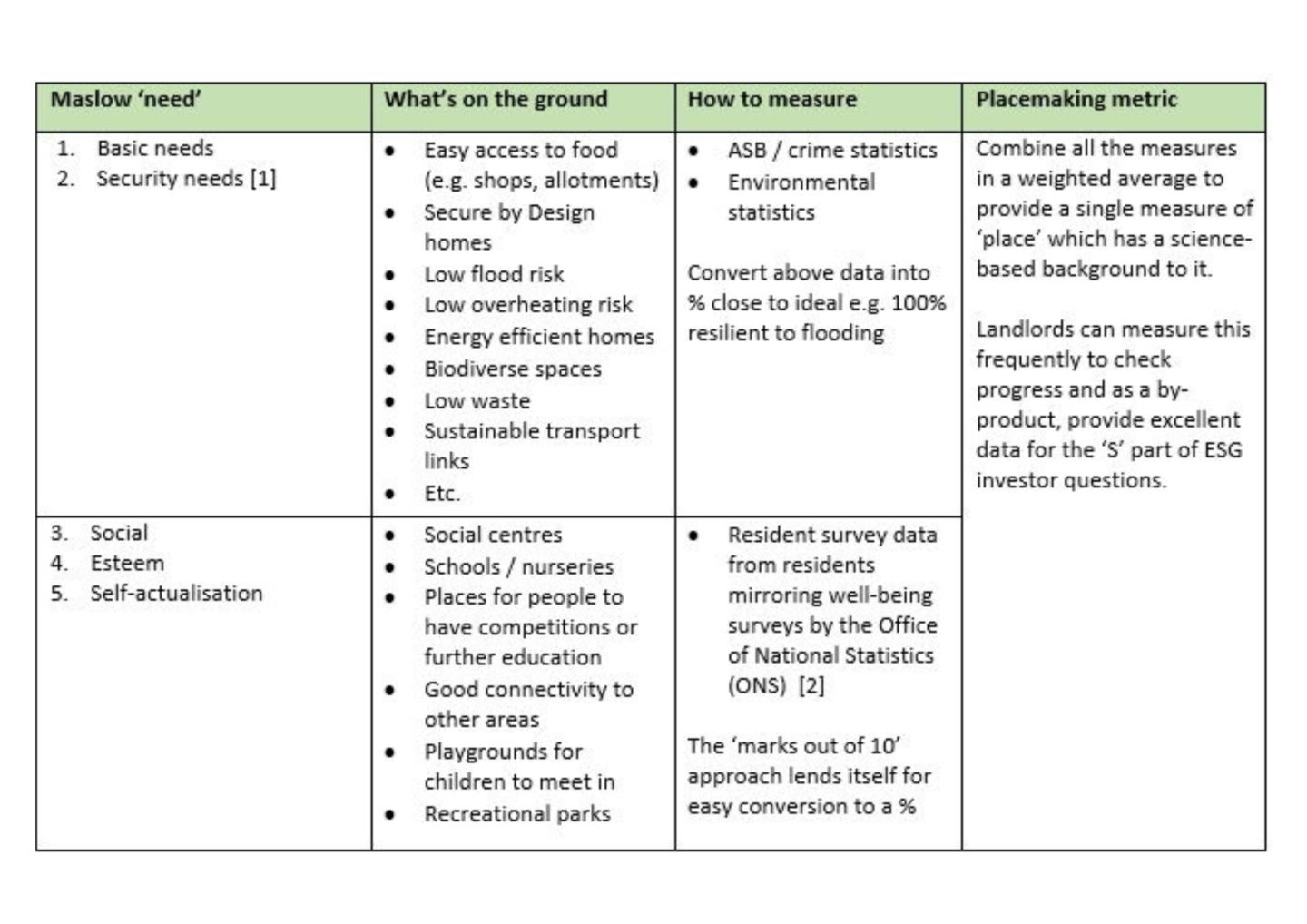Happiness, Placemaking and Asset Management
Talking about ‘happiness’ in an NHMF blog may seem a bit of an odd subject matter. But could this be the main topic that asset managers and social landlords will be aiming for in the next few years? There are huge external drivers to do so. Here are a few:

- Placemaking and/or levelling up are huge political issues that – and the condition of homes and estates will play a key part in this agenda.
- ESG / social value – one of the clauses in the ‘S’ part is placemaking – and investors are looking for hard statistics on this.
- DLUHC’s design guide refers to lots of aspects of ‘place’. E.g. “Safe, social and inclusive public spaces.”
Regardless of these drivers, surely we would all want 100% happiness for our residents as well as ourselves and loved ones? And we’d all want to live and work in great places. But what makes a great ‘place’ and how can you measure progress towards this great place? After all, you can only manage what you measure.
If we can use the words ‘happiness’ and ‘wellbeing’ interchangeably, then an excellent place to start is Maslow and his well-known hierarchy of needs. The famous psychologist put forward his ideas on what it meant to be a human and since then academics have supported his findings i.e. the more that people have their needs met the higher their ‘marks out of 10’ for their overall life satisfaction is.
But what could this look like in practice?
The table gives some thoughts on what this could mean and how to measure it:
 [1] Environmental protection issues have been included here because this makes on overall contribution to security of supply of our basic needs - like food, water, clean air and shelter. E.g. adverse climate change will affect our food supply as well as bring increased flood risk and heatwaves.
[1] Environmental protection issues have been included here because this makes on overall contribution to security of supply of our basic needs - like food, water, clean air and shelter. E.g. adverse climate change will affect our food supply as well as bring increased flood risk and heatwaves.
[2] A typical question from the ONS is:
Overall, how satisfied are you with your life nowadays? Where 0 is 'not at all satisfied' and 10 is 'completely satisfied'.
Hopefully this article gives a bit of food for thought and will encourage us all to work towards a sustainable stock and operations, whilst paving the way to happiness for us all!
___________________________________________________________________________________________________________________________
About the Author

Richard Lupo MIEMA, CEnv is managing director of SHIFT Environment, and author of Happiness by Numbers which explore the scientific basis for wellbeing measurement and including environmental protection in those measures.
More details on the book can be found here.


